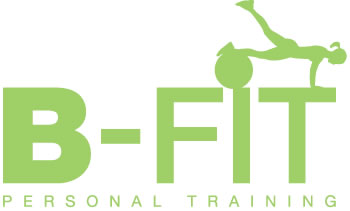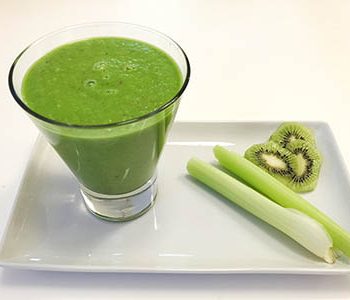In case you weren’t aware, B vitamins are an essential part of various bodily functions, including energy production, blood cell formation, and the maintenance of healthy bone, skin and tissues. B vitamins embody a group of eight water-soluble vitamins, each with its own specific functions. These include thiamin (also known as B1), riboflavin (B2), niacin (B3), pantothenic acid (B5), vitamin B6, biotin (B7), folate (B9), and cobalamin (B12). All of them play their own crucial roles in how energetic you feel, as well as the cellular function of your brain and nervous system, as well as overall health and immunity.
However, many people find they have B vitamin deficiencies. This could be because of a number of reasons, such as poor sleep, excessive stress, which can lead to you utilising a lot more B vitamins than usual, as well as eating processed foods and binge drinking. The body only has a limited capacity to store B vitamins. Therefore, you need to eat an adequate amount of them regularly, as part of a well-balanced and healthy diet.
Vitamin B Deficiency
If you’re in the unfortunate position of being vitamin B deficient, it’s not something that you should ignore or brush under the carpet. The symptoms of B vitamin deficiency can vary, depending on the specific B vitamin that is lacking. However, some of the most common symptoms of vitamin B deficiency include:
– Fatigue, weakness or a more general lack of energy
– Numbness or tingling in the hands and feet
– Weakened muscles and slow reflexes
– Shakiness when walking or difficulty keeping balance
– Confusion, loss of memory and dementia
– Vision problems
– Psychological symptoms such as depression
If left untreated, all of the above symptoms can lead to more lasting side effects that will eventually cause more severe issues affecting the nervous system and brain. So, if you suspect you might be vitamin B deficient, it’s important to consult your GP for a proper diagnosis and treatment.
What Causes Vitamin B Deficiency?
Generally, B vitamin deficiency is caused by not consuming enough foods that are rich in these vital nutrients or because of certain medical conditions, such as Crohn’s or celiac disease, anaemia or even surgery on the gastrointestinal tract, which can hinder the body’s ability to absorb B vitamins effectively.
In addition, certain groups, such as older adults and pregnant women, have increased requirements for some B vitamins, while excessive alcohol consumption can also lead to a deficiency, because our livers need more vitamin B to metabolise lots of alcohol. And as far as other things that you put in your mouth are concerned, overcooking food, as well as food that is highly processed and some prescription medication can reduce the potency of many B vitamins, which can potentially lead to you becoming deficient. That’s why it’s important to address a suspected B vitamin deficiency, in order to prevent any more associated health complications.
Up Your Intake
To prevent B vitamin deficiency from happening in the first place, your diet should be rich with an adequate intake of B vitamins from foods such as grass fed beef, organic eggs and dairy, as well as organic green leafy veg and legumes. You should also avoid consuming excessive amounts of alcohol, because this can hinder your body’s ability to absorb these important nutrients. One delicious way of upping your intake is through eating organic grass-fed beef, which is a rich source of B vitamins, including vitamin B12, and minerals like iron. And it’s essential that you choose grass-fed beef to ensure the highest quality of nutrients in the meat. For example, compared to grain-fed beef (from corn and soy, which is usually GMO), the grass-fed variety is generally richer in B vitamins, including:
Vitamin B3 (Niacin)
Grass-fed beef has higher levels of niacin, which promotes a healthy nervous system, digestive system, and skin.
Vitamin B6
Purchasing grass-fed beef instead of conventional beef is a great choice, because it contains higher amounts of vitamin B6, which is necessary for keeping your metabolism in check. It also helps to maintain healthy brain function and mental health, while it also supports the regulation of homocysteine levels in the blood. Elevated levels of homocysteine are associated with an increased risk of cardiovascular disease.
Vitamin B12
Grass-fed beef is a nutritious source of vitamin B12, an essential nutrient for the nervous system and red blood cell formation. While grain-fed beef also contains vitamin B12, grass-fed beef is generally considered to be a cleaner source, while it is also rich in other vitamins and minerals, including vitamin A and E, which are essential for supporting a healthy immune system response, facilitating cell growth and promoting better bone health, and so it even plays an important role in helping to keep prevent osteoporosis.
This all means it’s an absolute fact that grass-fed beef is a superior source of B vitamins when compared to the conventional grain-fed beef that you buy at the supermarket or butchers. It’s also richer in key micronutrients, particularly carotenoids, which act as a precursor to vitamin A and vitamin E. Plus, it has a better ratio of omega-3s, monounsaturated fat, and conjugated linoleic acid compared to conventional grain-fed beef. This means that you could do a lot worse than incorporating organic grass-fed beef into your healthy eating routine. Here’s a delicious and nutritious recipe to help you along the way………..CLICK HERE TO READ MY RECIPE FOR GRASS-FED BEEF AND VEGETABLE HASH.
If you are vegetarian or vegan and feel that you may be deficient in B vitamins, then this is the supplement I would recommend to top them up. Nutri-Calm‘s contains a specially formulated and yeast free blend of B vitamins that will help you to maintain a healthy nervous system, as well as reduce tiredness and fatigue.
CLICK HERE TO GET YOURSELF SOME NUTRI-CALM
Alternatively, if you want to do a check to see if you are deficient in any key vitamins or minerals, then try this great, quick 2-minute questionnaire to help you find out if you need a boost in anything
CLICK HERE TO TAKE THE LIFESTYLE ANALYSIS QUESTIONNAIRE
Love, Gaynor x





